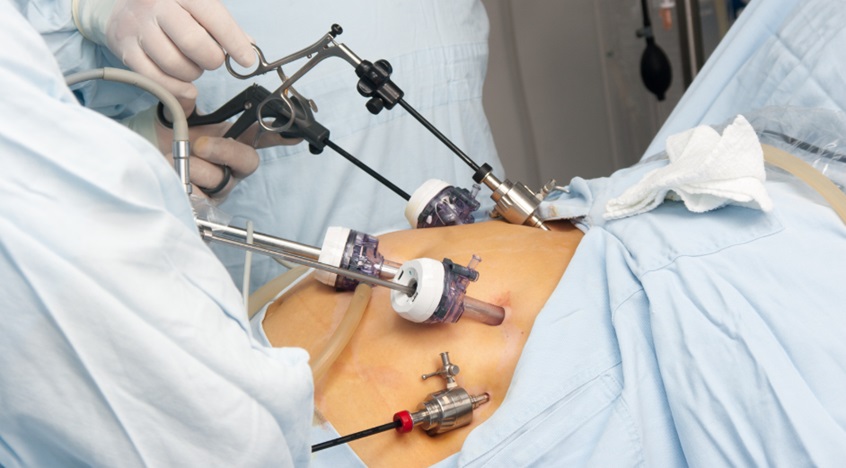Gastric sleeve surgery is a transformative step toward achieving significant weight loss and improving overall health. However, it’s common for patients to experience weakness and fatigue during the initial recovery phase. If you’ve undergone NY bariatric surgery, understanding the causes of weakness and implementing effective strategies can help you regain your energy and strength.
By making gradual lifestyle adjustments, focusing on nutrition, and following medical advice, you can overcome post-surgery weakness and enjoy the benefits of your bariatric journey.
Why Does Weakness Occur After Gastric Sleeve Surgery?
Reduced Caloric Intake
Gastric sleeve surgery significantly reduces the stomach size, limiting the amount of food you can consume. While this promotes weight loss, it can also decrease calorie and nutrient intake, resulting in fatigue and weakness.
Nutrient Deficiencies
Key vitamins and minerals, such as iron, B12, and protein, are essential for maintaining energy levels and supporting muscle function. Post-surgery dietary restrictions can sometimes cause deficiencies, contributing to dizziness, fatigue, and muscle weakness.
To better understand post-surgical symptoms like dizziness and how to address them, you can explore this detailed explanation of why you get dizzy after bariatric surgery, highlighting ways to manage and prevent these challenges.
Dehydration
Staying hydrated is essential after gastric sleeve surgery, but reduced stomach capacity can make it challenging to consume enough fluids. Dehydration often leads to fatigue and weakness, particularly during the early recovery.
Steps to Overcome Weakness After Gastric Sleeve Surgery
- Focus on Proper Nutrition
- Prioritize Protein Intake: Protein is essential for maintaining muscle strength and promoting healing. Incorporate protein-rich foods like lean meats, eggs, dairy, and protein shakes into your daily diet.
- Monitor Vitamin and Mineral Levels: Take recommended supplements, such as vitamin B12, iron, and calcium, to prevent deficiencies that can cause weakness. Follow your surgeon’s guidelines for proper supplementation.
- Eat Small, Frequent Meals: Consume smaller, nutrient-dense meals throughout the day to maintain energy levels without overwhelming your stomach.
Stay Hydrated
Drink at least 64 ounces of water each day, taking small sips to prevent discomfort. Staying hydrated helps combat fatigue, supports digestion, and improves overall recovery. Avoid sugary or carbonated drinks, as these can irritate the stomach.
Gradually Incorporate Physical Activity
While rest is essential after surgery, incorporating light physical activity can help rebuild strength and energy over time.
- Start with short walks and gentle stretching exercises.
- Gradually increase activity as you recover, focusing on low-impact exercises like swimming or yoga.
- Regular movement improves circulation, boosts energy, and promotes well-being.
Get Plenty of Rest
Allow your body to heal during the initial recovery period. Strive for 7-9 hours of restful sleep each night and take brief naps during the day if necessary. Rest is essential for recovery and helps combat post-surgery fatigue.
Monitor Your Progress
Stay in regular contact with your healthcare team to monitor your recovery and address any ongoing weakness or fatigue. Blood tests may be needed to assess nutrient levels and adjust supplements.
Lifestyle Adjustments for Long-Term Energy
Maintaining long-term energy levels after gastric sleeve surgery requires consistent lifestyle changes. This includes adopting a balanced diet, staying active, and prioritizing hydration. For more insight into the long-term adjustments needed post-surgery, this article on lifestyle changes after bariatric surgery-what to expect provides valuable guidance on what patients can expect and how to adapt to new routines.
Conclusion
Experiencing weakness after gastric sleeve surgery is a common challenge, but it can be effectively managed with the right strategies. For individuals who’ve undergone bariatric surgery, focusing on proper nutrition, staying hydrated, engaging in light physical activity, and prioritizing rest are key steps to regaining energy and strength. By following your healthcare team’s guidance and making necessary lifestyle adjustments, you can overcome post-surgery fatigue and enjoy the full benefits of your weight loss journey.

